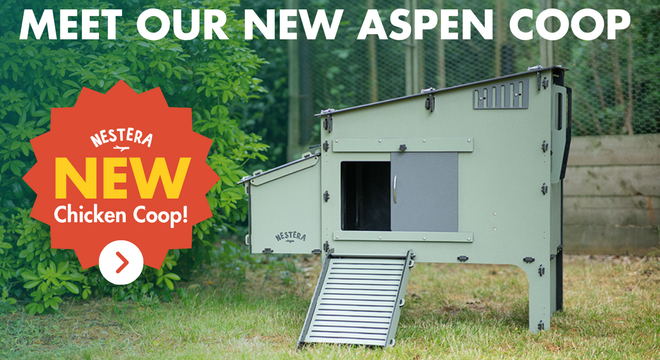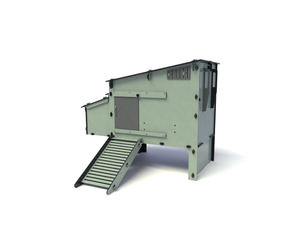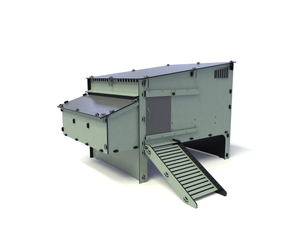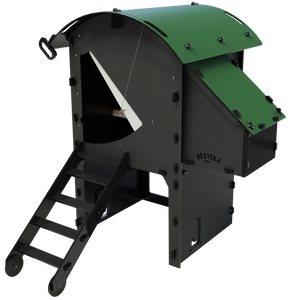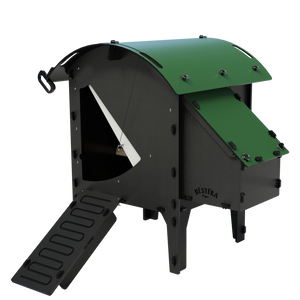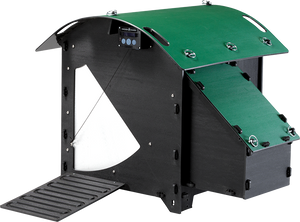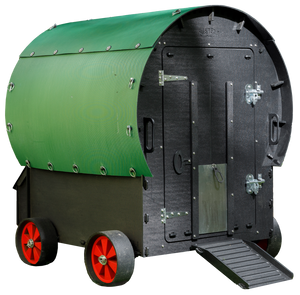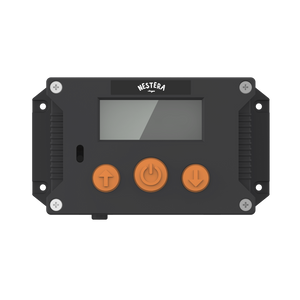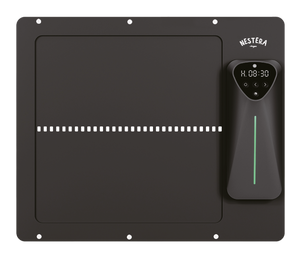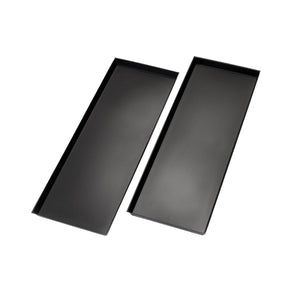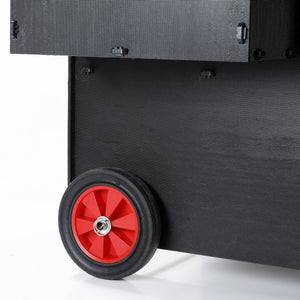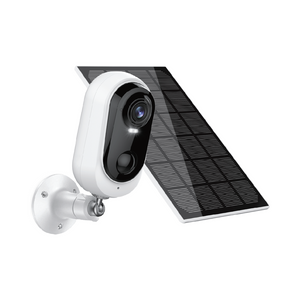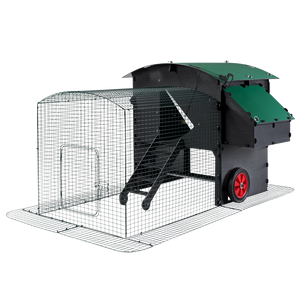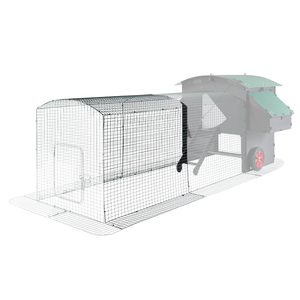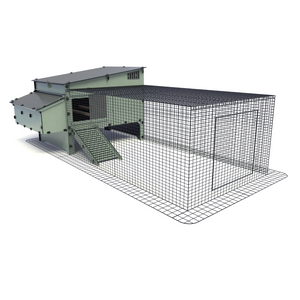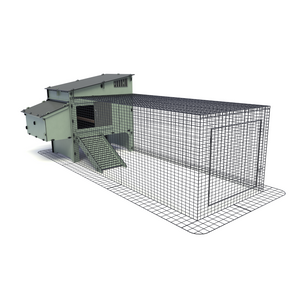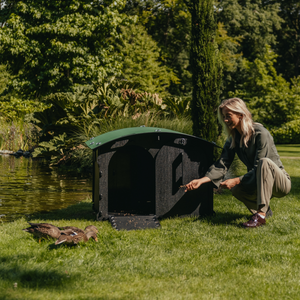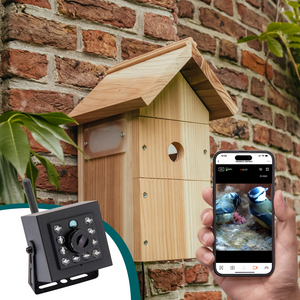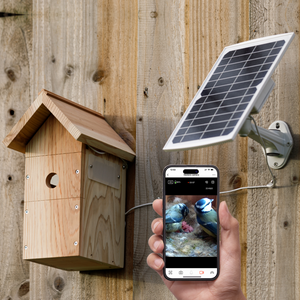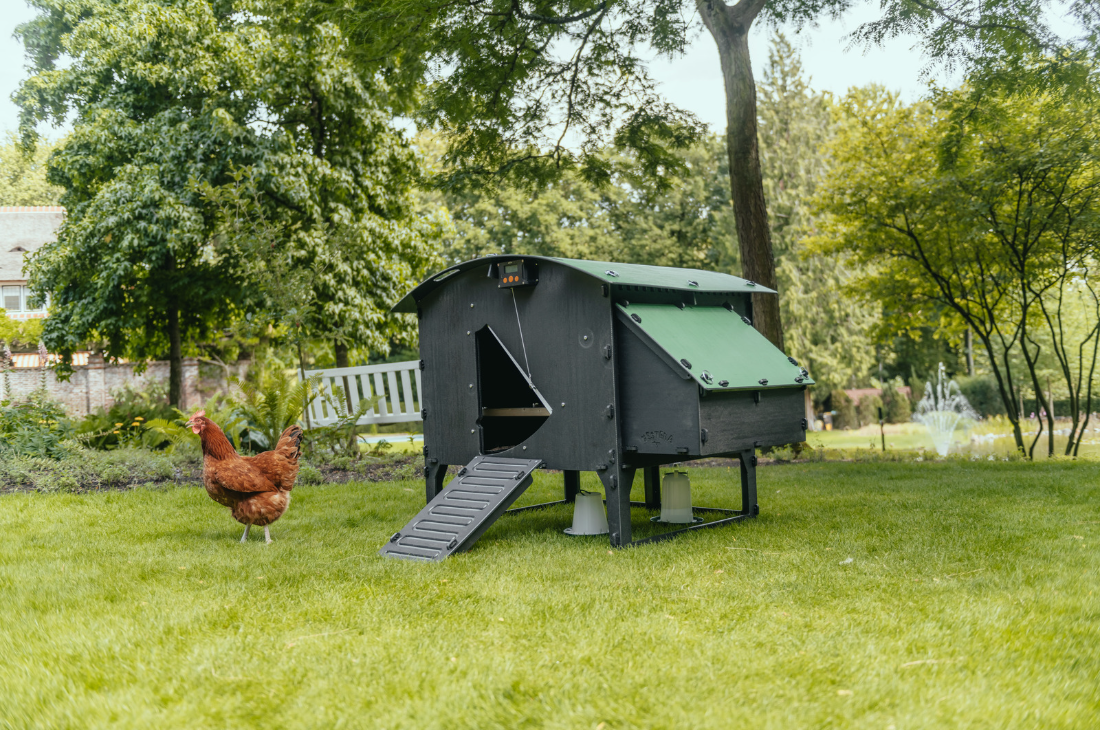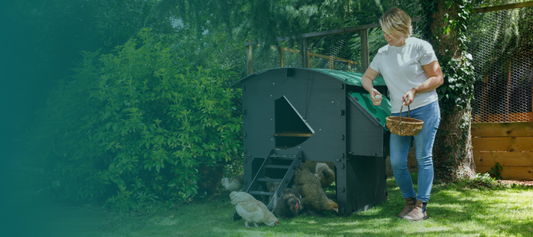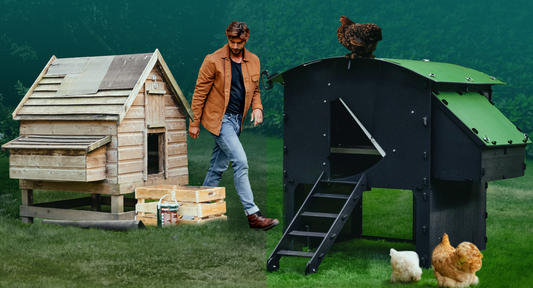Here at Nestera, sustainability is at the core of everything we do; we believe in making high-quality, long-lasting products to minimise our impact on the planet. We are extremely proud that all our chicken coops are made from recycled plastic waste - and throughout every stage of manufacturing, all waste is collected and further recycled, making it a near-zero-waste process.
But it’s not just our chicken coops that allow more sustainability - check out our 10 ways that keeping chickens can help you live a more sustainable lifestyle:
1. Eggs
Let’s start with the obvious one… Eggs are an excellent source of animal-based protein, without harming any animals. Eggs use the least amount of resources to produce any animal protein, which means they’re better for the environment than meat or dairy.
2. Pest Control
Chickens are omnivorous and will happily eat garden pests, including mice and insects - even below soil level. This makes them excellent natural pest controllers without the need for nasty insecticides.
3. Free Lawn Care
Chickens love to scratch at your lawn, dislodging moss and old grass, so they scarify your lawn for free. Obviously, they also add their own manure at the same time too - all without a chemical or machine in sight.
4. Natural Weed Killers
Chickens will scratch up and eat the weeds in your garden borders, even the tricky perennial ones. This will not only save you time, but also help save bees, other insects and your soil from dangerous weed killers. The leaves on the ground will even enrich the colour of your chickens’ yolks!
5. Free Compost
Chickens poop - a lot! Chicken poop mixed with used coop bedding makes the most marvellous addition to the compost heap. It combines a valuable ‘brown layer’ and helps the green material breakdown which can eventually be used in the garden.
6. Valuable Nutrients for Your Plants
Used eggshells are an excellent source of usable calcium for your plants. Either add them to your compost bin or dry them out and grind them up to use when planting or top dressing your plants. Feathers are great for the soil too!
7. Help with Excess Produce
If you grow any sort of fruit, vegetables or herbs, chickens love to help you get rid of any excess. Windfall apples, caterpillar-covered brassicas and herbs that have gone to seed will efficiently be converted into delicious eggs.
8. Grow Your (*their) Own
If you’re keen on ‘Grow Your Own’ and have the space, you can produce a huge range of organic nutritious food for your chickens. We’re growing sweetcorn, sunflowers, garlic, broad beans, millet and various salad leaves this year for our flocks!
9. Use Fewer Resources
Only keep the number of hens for the amount of eggs your family needs. The smaller the number of chickens, the smaller the coop, run, bedding and feed you will need. This will save you money and use fewer precious resources. Don’t forget, any additional eggs left over can always be sold locally, making you some extra money.
10. Minimise Your Impact on The Planet
Every Nestera chicken coop is made from recycled domestic plastic waste. By using a Large Nestera coop, you are saving the equivalent of 2,000 shampoo bottles from landfill or polluting the ocean. The durability of our recycled plastic means we can offer an unbeatable 25-year warranty on all our coops, so you’ll be saving endless trees from becoming short-lived wooden coops too!
Explore our range of recycled plastic chicken coops here and start your journey towards a more sustainable lifestyle.
